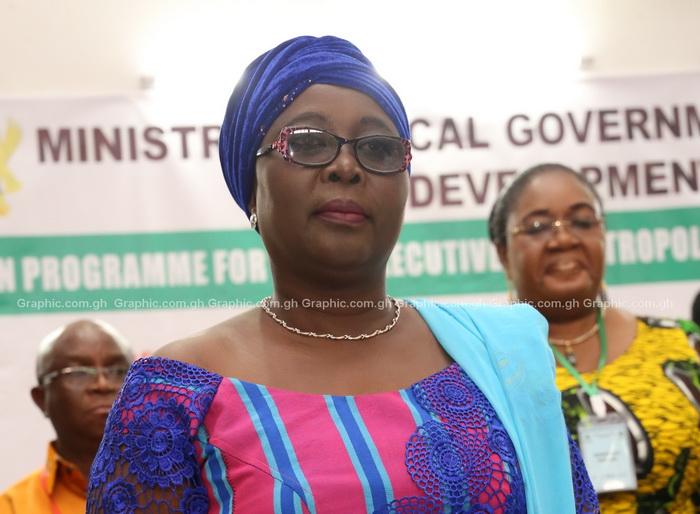
Bill on election of MMDCEs submitted to Parliament
The Ministry of Local Government and Rural Development (MLGRD) has presented to Parliament a bill on the amendment of some articles in the 1992 Constitution.
The amendments when passed will allow Ghanaians to vote for metropolitan, municipal and district chief executives (MMDCEs).
The articles slated for amendment are Article 243 (1) on the appointment of MMDCEs by the President and Article 55 (3), which prohibits the involvement of political parties in district level elections.
A Deputy Minister of Local Government and Rural Development, Mr O. B. Amoah, disclosed this at a retreat on ‘Multi-party participation in local governance in Ghana’, at Big Ada.
He emphasised the President’s commitment to have MMDCEs elected and for which reason the ministry was working hard to meet all timelines.
The two-day event which took place over last Friday and Saturday was organised by the Institute of Democratic Governance (IDEG) and was attended by ministers of state, Members of Parliament (MPs) and some national executives of the New Patriotic Party (NPP).
Sensitisation
The bill was submitted to Parliament by the MLGRD following nation-wide consultations on the matter of election of MMDCEs. There were also discussions with a cross-section of governance experts and traditional leaders in all 10 regions of the country.
The stage is now set for a nation-wide sensitisation on the matter as well as changes to entrenched constitutional provisions in relation to that.
The Government has proposed a referendum on the election of MMDCEs for next year.
The referendum must have at least 40 per cent of registered voters turning out to vote and 75 per cent of that number endorsing the measure in accordance with Article 290 (4).
Timelines on course
Mr Amoah expressed his satisfaction over preparations, consultations and activities the MGLRD had made prior to having amendments made to the Constitution.
He further conveyed his contentment over the fact that the ministry had worked within timelines to get the bill to Parliament.
He commended civil society organisations that were working to get MMDCEs elected and singled out IDEG for the role it was playing in that effort .
Dialogue on challenges
The General Secretary of the NPP, Mr John Boadu, emphasised the commitment of the party to have MMDCEs elected.
“For us in the New Patriotic Party we believe that power belongs to the people and therefore the people must decide on how they want to be governed,” he said.
He, however mentioned some challenges that the measure could bring.
Among them he said were security implication in having an elected MMDCE as head of the security structure at the local level, particularly when the elected official did not belong to the party of the government.
Furthermore, Mr Boadu wondered why the President’s appointees to the assemblies who formed 30 per cent of its membership was going to be when the MMDCE was elected.
In addition, Mr Boadu asked how accountable an elected MMDCE would be to the President and the relationship that would exist between the elected official and the Member of Parliament when the change occurred.
He urged the IDEG to float about such enquiries whenever the opportunities came for discussion on the topic to engender consensus building.
Parties transformational machines
The Executive Director of IDEG, Dr Emmanuel Akwetey, announced that a simplified information brochure on the election of MMDCEs would be this month.
He was hopeful that the brochure would enlighten public discussions on the topic and invited the ministry to adopt it as part of its sensitisation materials.
He said a sensitised public was important for the programme to have MMDCEs elected to succeed.
Dr Akwetey also emphasised the role of political parties as agents of transformation, adding that amending Article 55(3) would be a catalyst for institutional, legal and financial reforms in the country's decentralisation system.
